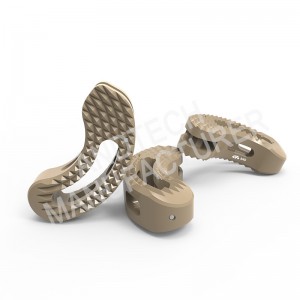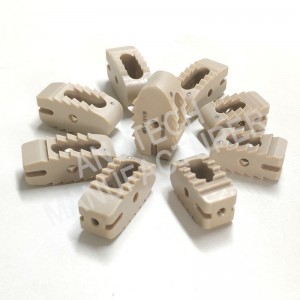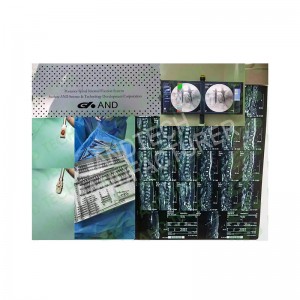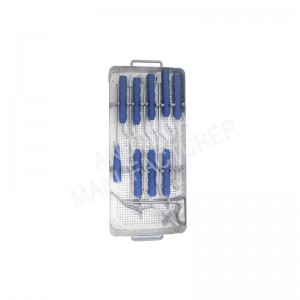Fusion Cage
PEEK spinal cages, also termed interbody fusion cages, are used in spinal fusion procedures to replace a damaged spinal disc and provide an ideal environment for two vertebrae to fuse together. PEEK interbody fusion cages are positioned between the two vertebrae that are to be fused.
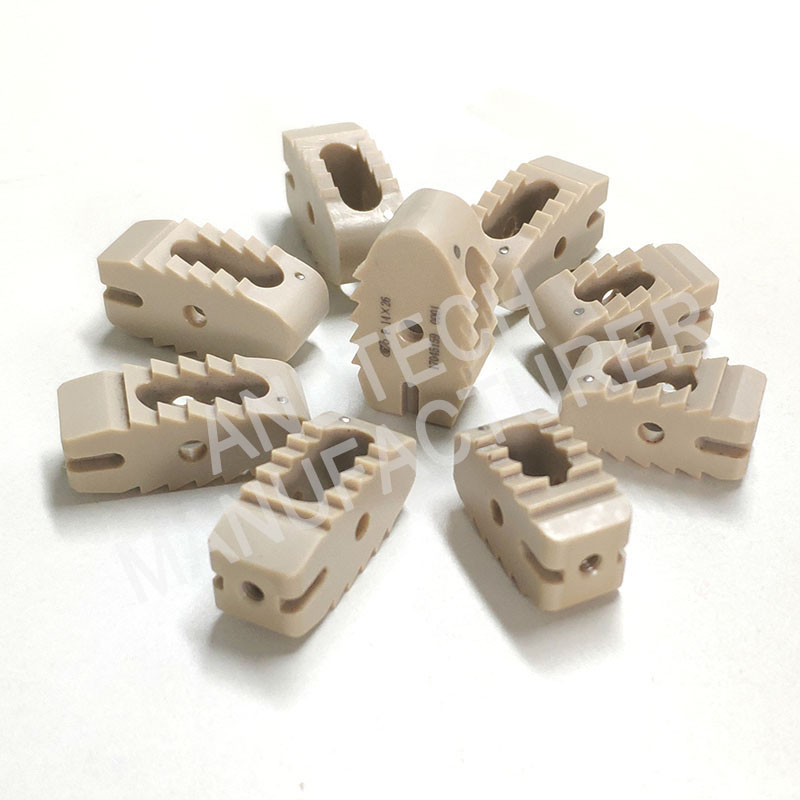
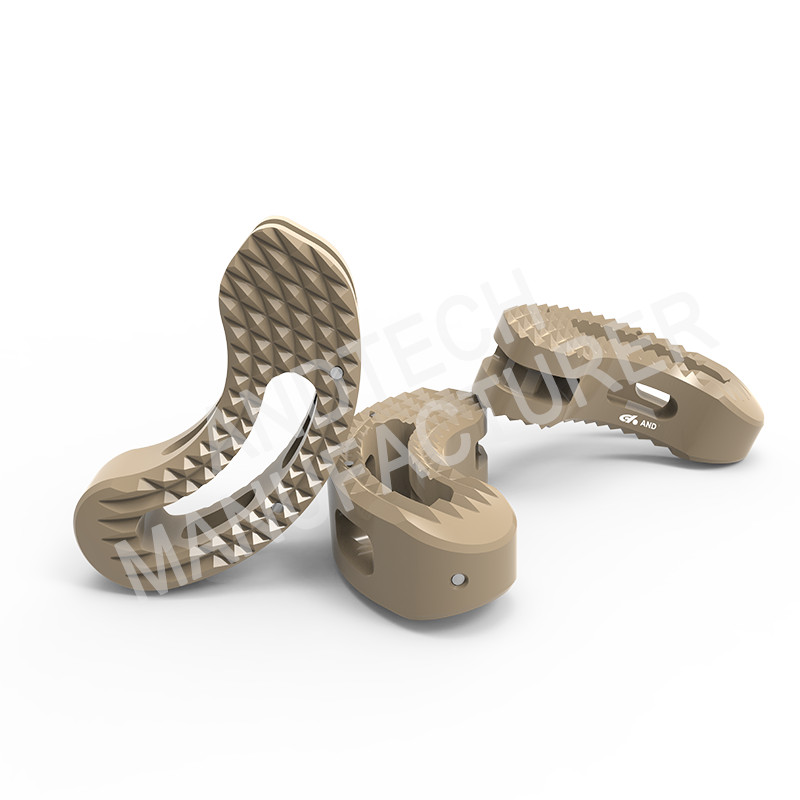
Product Description
Covex toothed surface design
An excellent fit to the anatomical structure of vertebral endplate
PEEK material
Closest to bone elastic modulus Radiolucent
Sufficient space for bone grafting
Improve the infusion rate
Bullet shape head
Easier implantation
Self-distraction during implantation
Three imaging marks
Easy for location under X-ray
Medical Tips
What is TILF?
TLIF is a unilateral approach for interbody fusion to restore normal intervertebral space height and lumbar spine physiological lordosis. The TLIF technique was first reported by Harms in 1982. It is characterized by a posterior approach, which enters the spinal canal from one side. To achieve bilateral vertebral body fusion, there is no need to interfere with the central canal, which reduces the occurrence of cerebrospinal fluid leakage, does not need to stretch the nerve root and dural sac too much, and reduces the probability of nerve damage. The contralateral lamina and facet joints are preserved, the bone graft area is increased, 360° fusion is feasible, the supraspinous and interspinous ligaments are preserved, which can reconstruct the posterior tension band structure of the lumbar spine
What is PILF?
PLIF (posterior lumbar interbody fusion) is a surgical technique for fusing lumbar vertebrae by removing the intervertebral disc and replacing it with a (titanium) cage. The vertebrae are then stabilized by an internal fixator (transpedicular instrumented dorsal WK fusion). PLIF is a stiffening operation on the spine
In contrast to the ALIF (anterior lumbar intervertebral fusion), this operation is performed from the posterior, i.e. from the back. A surgical variant of the PLIF is the TLIF ("transforaminal lumbar interbody fusion").
How it works?
The cervical spine PEEK cages are very radiolucent, bio-inert, and are compatible with MRI. The cage will act as a space holder between the vertebrae affected, and then it allows the bone to grow and eventually becomes a part of the spine.
Indications
The indications may include: discogenic/facetogenic low back pain, neurogenic claudication, radiculopathy due to foraminal stenosis, lumbar degenerative spinal deformity including symptomatic spondylolisthesis and degenerative scoliosis.
Benefit
A solid cage fusion can eliminate the motion, increase the space for the nerve roots, stabilize the spine, restore spine alignment, and relieve pain.
Material of fusion cage
Polyetheretherketone (PEEK) is a non-absorbable biopolymer that has been used in a variety of industries including medical devices. The PEEK cages are biocompatible, radiolucent, and have modulus of elasticity similar to the bone.







